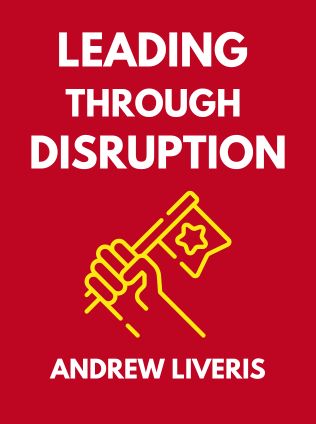
Leading through Disruption
A Changemaker's Guide to Twenty-First Century Leadership
By Andrew Liveris
Published 07/2023
About the Author: Andrew Liveris
Andrew Liveris, a prominent figure in global business, has been recognized for his extensive experience and leadership in the chemical industry, particularly during his tenure as CEO of Dow Chemical Company. With a career spanning several decades, Liveris has navigated the company through significant transformations and disruptions. His insights into the evolving business landscape are informed by his deep understanding of global markets, innovation, and sustainable development. Liveris is also known for his advocacy of corporate responsibility, emphasizing the importance of ethical governance and social responsibility in business operations.
Main Idea
"Leading Through Disruption: A Changemaker’s Guide to Twenty-First Century Leadership" by Andrew Liveris delves into the complexities of modern leadership in an era marked by rapid and unpredictable changes. The book explores how traditional leadership models are becoming obsolete and provides a framework for adapting to new realities. Liveris emphasizes the importance of integrating Environmental, Social, and Governance (ESG) principles into business strategies, advocating for inclusive capitalism, and understanding the geopolitical landscape. The book also underscores the necessity of long-term thinking, agile governance, and the integration of science and technology in business practices.
Table of Contents
- The New Role of ESG
- Inclusive Capitalism and the New Common Good
- Leadership Lessons for the Future
- The Geopolitical Landscape and Business
- The Importance of Long-Term Thinking
- The Role of Boards in Modern Enterprises
- Embracing Crises as Opportunities
- The Role of Government in Business
- The Necessity of Self-Disruption
- The Role of Science in Business
- Looking Towards 2050
The New Role of ESG
Environmental, Social, and Governance (ESG) metrics have become crucial in assessing a company's overall impact and sustainability. According to Liveris, businesses must move beyond mere compliance and adopt a proactive stance on these issues. He argues that the stewardship of modern enterprises should align with broader societal goals, including environmental sustainability and social equity. This shift reflects a broader cultural and demographic change where companies are increasingly held accountable by a variety of stakeholders, not just shareholders.
"Profit and purpose have converged. Doing well and doing good should be in the DNA of what it means to be a leader." - Andrew Liveris
companies integrating ESG into their core strategies include:
- A technology firm reducing its carbon footprint by switching to renewable energy sources.
- A consumer goods company committing to fair trade practices and sustainable sourcing.
- A financial institution developing products that support sustainable projects and social enterprises.
Inclusive Capitalism and the New Common Good
Liveris introduces the concept of Inclusive Capitalism, which aims to balance the creation of shareholder value with broader societal benefits. This approach challenges the traditional capitalist model that prioritizes profit maximization for shareholders alone. Instead, it advocates for a more equitable distribution of wealth and opportunities across all societal levels. The idea is that businesses should contribute to solving social issues like inequality and environmental degradation.
"Business is being asked to address the bigger role capitalism plays, redress past mistakes, and do better in serving all levels of society." - Andrew Liveris
inclusive capitalism in action include:
Sign up for FREE and get access to 1,400+ books summaries.
You May Also Like
The Subtle Art of Not Giving a F*ck
A Counterintuitive Approach to Living a Good Life
By Mark MansonRich Dad Poor Dad
What the Rich Teach Their Kids About Money - That the Poor and Middle Class Do Not!
By Robert T. KiyosakiHow To Win Friends and Influence People
The All-Time Classic Manual Of People Skills
By Dale CarnegieFreakonomics
A Rogue Economist Explores the Hidden Side of Everything
By Steven D. Levitt and Stephen J. Dubner



















